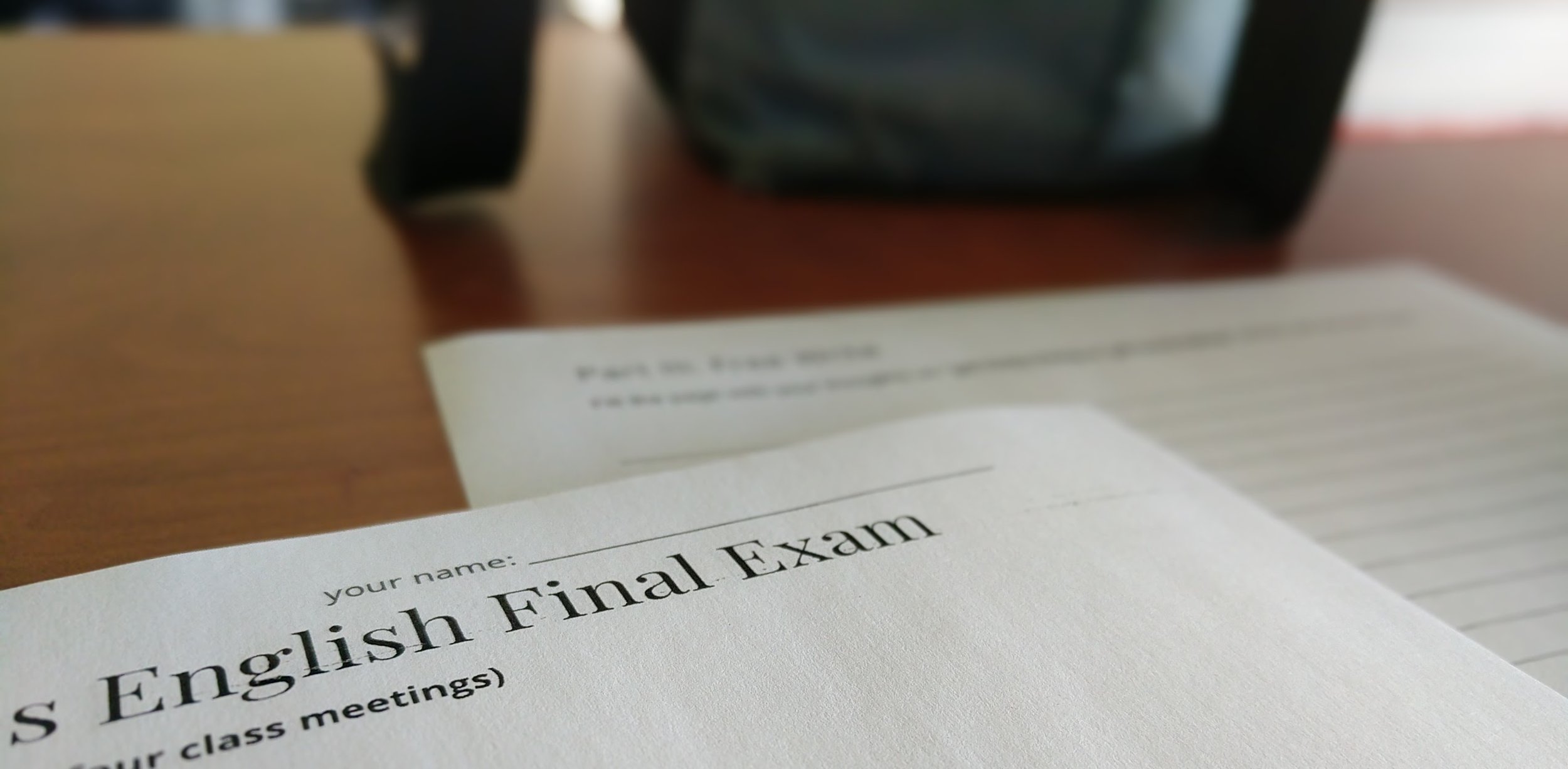Final Exams In The Schools
I'm giving the final exam at school this week. It will likely bleed into some of next week too. That's why we start early. Our school requires a final as 20% of kids' overall grades, so it's a big deal. I use pieces of old New York State Regents examinations and have two guys here right now trying to do the reading comprehension part. Of course, neither is reading the passage on which the multiple choice questions will be based.
Before the exam, I gave them advice about how to score well: Read the questions, then read the passage, and finally, cross out answers they know are wrong in order to circle the right one. Most of them skip reading the passage. I don't blame them, but try to talk them out of it. They say, I never read no passages and get like hundreds on these things. I nod. Wow, I say, that's great, but students in my classes haven't done that well with that method and so you might-- Nah, they say, I got this. They then answer three out of ten correctly and say the test is rigged.
Teaching is a series of largely rejected suggestions. I would be more upset if this wasn't also my model for learning. I want to figure things out on my own anyway even if that means failing the first seven times. For better and for worse, I'm suspicious of advice and other people's experience. I can't be surprised then when my students think I'm full of shit, nor can I say they're wrong.
One guy here just started trying to read the passage. The other just asked me what sheems means. Puzzled, I went to his desk, looked where he pointed, and said, oh, schemes. He repeated my pronunciation. Oh, he said, then asked, what does that mean? It's in one of the questions, so I couldn't say but I said he might be able to figure it out from reading that part of the passage. He said, screw it, that's too much work, and circled answer three at random.
The last two weeks of classes are like this. The end of the school year is like this. I want to think we have made huge advances, that kids have been transformed. As Hemingway wrote, "Isn't it pretty to think so?" They aren't transformed. Maybe they've learned a few things, but these are the same kids with whom I've worked most of the year. Kids don't change into what I want them to be. School doesn't work that way.
They have changed though and mostly for the better. That one kid is still trying to read the passage. The other, well, he's honest with me and hasn't thrown anything in anger. We've only had one school year together and so it's wrong to expect transformation. I've been working on slow change for them and there's some evidence that they have changed.
Thankfully, I've changed too. I'm not battling them much. I try to understand them a little more. Change is slow with me too and I don't feel that I have been transformed. Like change, learning is often just at the edge of what we can register. Teaching is mysterious. We don't really understand one or the other. What we do know is that final exams are largely exercises in wasted time. I go on through the mysteries of teaching and learning because what else is there to do? We carry on with finals because someone, somewhere clings to the idea that they have meaning, and that someone signs my paycheck. Good enough reason for me.



